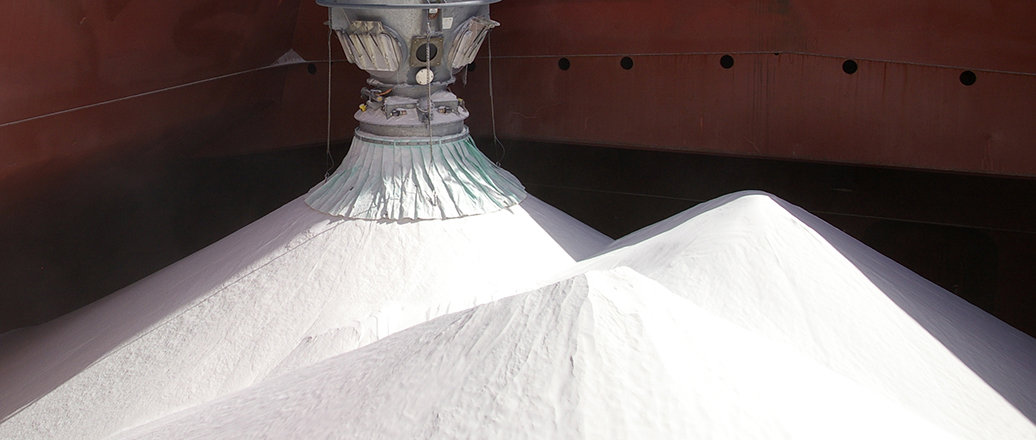Alumina
Alumina, or aluminum oxide, is the largest single cost in connection with aluminum production. Top quality alumina is required to produce quality metal with low environmental impact. The worldwide production of close to 100 millions tonnes is mainly produced from bauxite in the Bayer process.

Key features
- Hardness and strength
- Low heat retention and high melting point
Application areas
- For production of aluminum by the Hall–Héroult process
- Other industrial uses include abrasives, fillers in plastics and catalyst support for industrial catalysts
Product details
- To turn bauxite into alumina, we grind the ore and mix it with lime and caustic soda, pump this mix into high-pressure containers, and heat it. The aluminum oxide we’re after is dissolved by the caustic soda, then precipitated out of this solution, washed, and heated to drive off water. What’s left is the sugar-like white powder called alumina, or aluminum oxide (Al2O3).